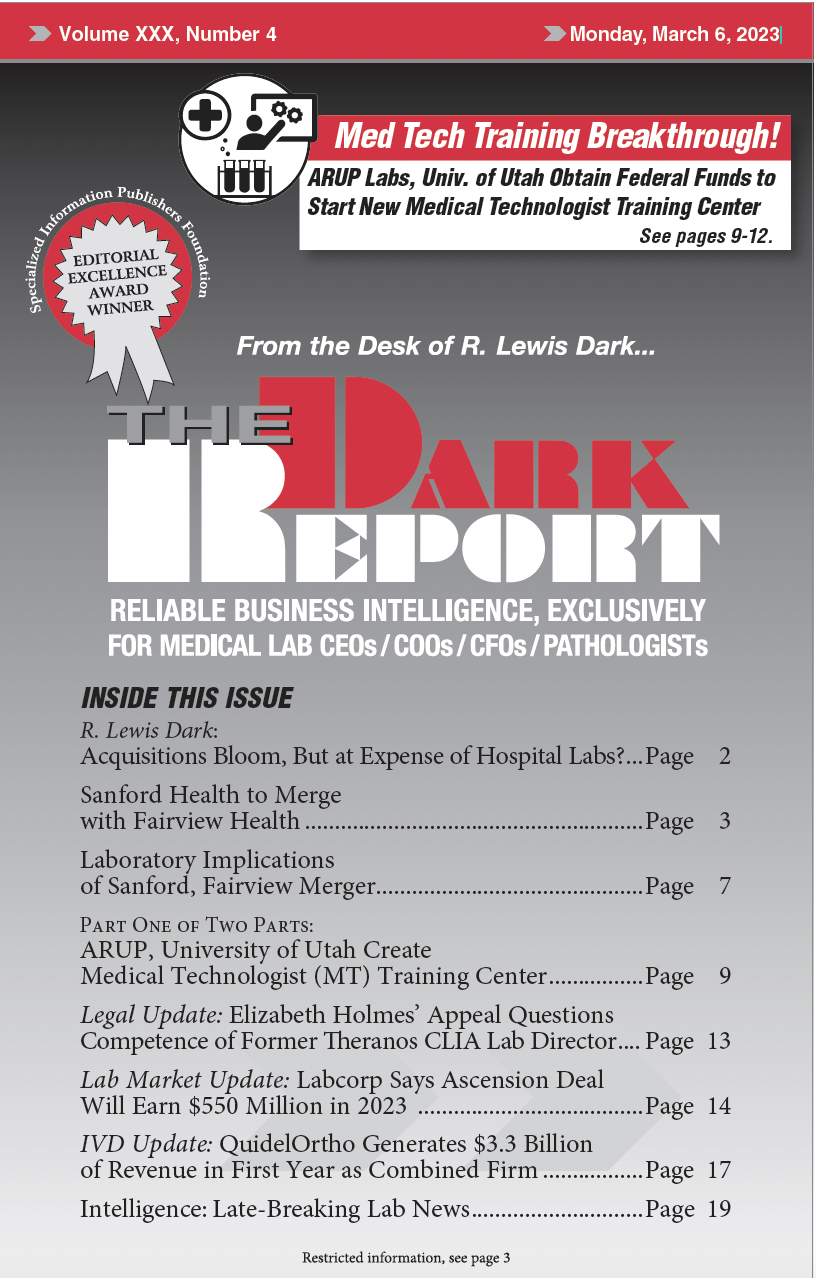CEO SUMMARY: Not too many years ago, many hospitals and health systems were bullish on their laboratory outreach businesses. But financial pressures on hospitals and health systems may be causing the pendulum to swing in the direction of hospitals selling their lab outreach programs, suggest two healthcare researchers. COMMENTING ON THE SIGNIFICANCE OF THE PENDING …
Laboratory Implications of Sanford/Fairview Merger Read More »
To access this post, you must purchase The Dark Report.


